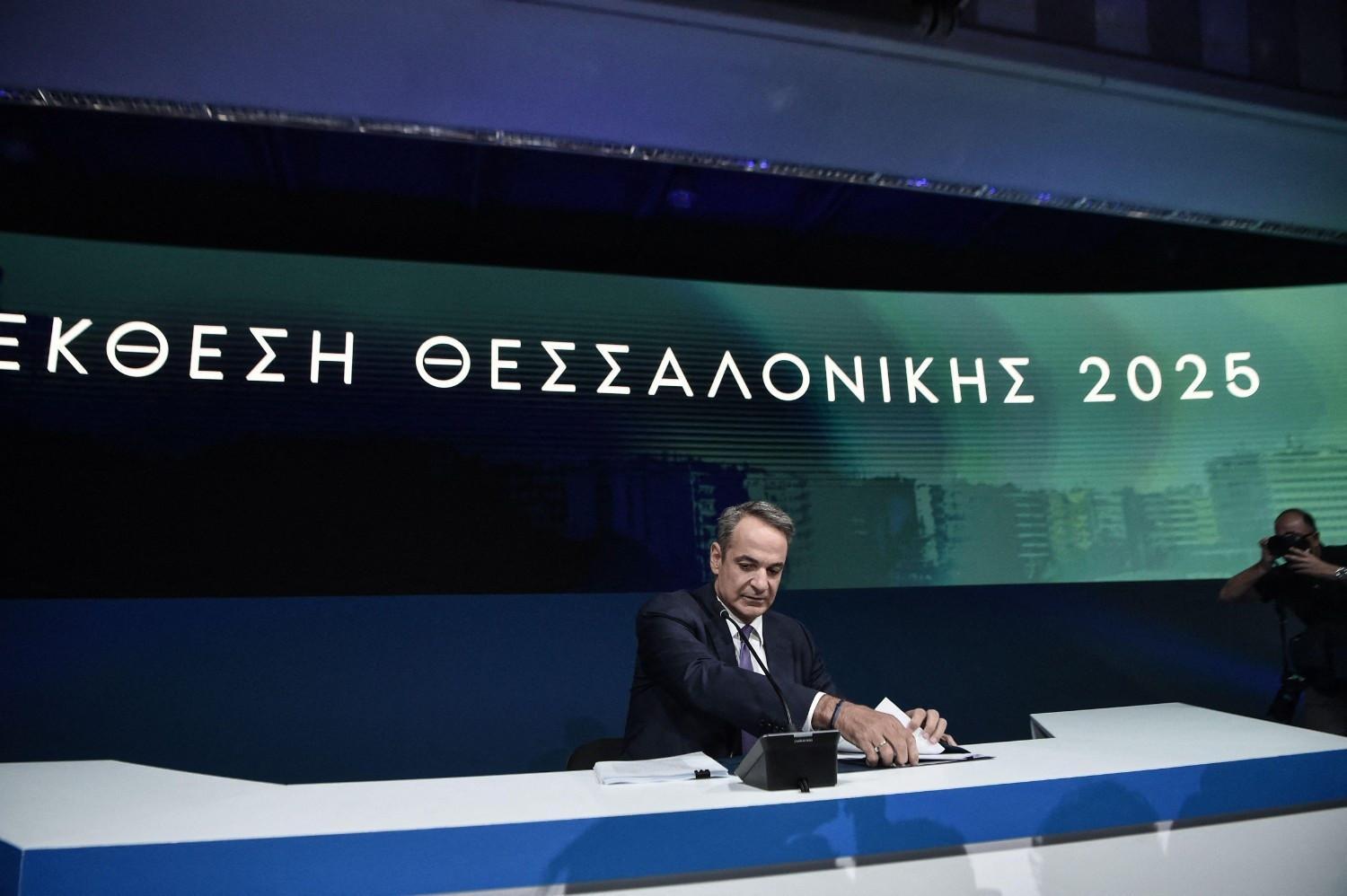
Greece's Prime Minister Kyriakos Mitsotakis attends a press conference at the Thessaloniki International Fair in Thessaloniki, northern Greece, on September 7, 2025. (Photo by Sakis Mitrolidis / AFP)
Greek Prime Minister Kyriakos Mitsotakis stated that Greece seeks "calm waters" in relations with Türkiye, but only on a foundation of strength and confidence, while demanding the removal of the casus belli threat.
In a lengthy press conference at the Thessaloniki International Fair on Saturday, Mitsotakis addressed Greek-Turkish relations extensively.
He highlighted Greece's actions over the past year, including the marine spatial planning map, declaration of marine parks, and hydrocarbon exploration tenders south of Crete, as demonstrations of resolve to protect Aegean sovereign rights.
"These moves may have provoked reactions in Türkiye. Greece's plan is not subject to Türkiye's approval. Our country has proven it exercises its sovereignty differently from the past," he said.
Regarding an expected meeting with Turkish President Recep Tayyip Erdoğan on the sidelines of the U.N. General Assembly this month, Mitsotakis reiterated the casus belli issue.
"I speak very honestly with Mr. Erdoğan in every meeting," he said.
The Turkish parliament declared in June 1995 that any extension of Greek territorial waters in the Aegean beyond six nautical miles would constitute a casus belli, granting the government military intervention authority.
"If we truly want substantive improvement in our relations, the unacceptable war threat known as 'casus belli' must be withdrawn. As long as 'casus belli' remains on the table, we will continue to block Türkiye's participation in Europe's SAFE defense program."
The SAFE initiative, unveiled by the EU Commission on March 19, aims to boost military spending, fund joint defense projects, and enhance production capacity by 2030.
To benefit, at least 65 percent of weapon systems must come from EU countries, the European Economic Area's Norway, Liechtenstein, Iceland, or Ukraine, with the remaining 35 percent from other nations.
Mitsotakis also dismissed the Türkiye-Libya maritime boundaries agreement.
"This agreement is illegal, baseless, and produces no legal consequences for anyone except the signatories," he remarked.
"We are in contact with both sides in Libya. We are on the right path to explain that, geographically, Athens is the natural counterpart on this issue."